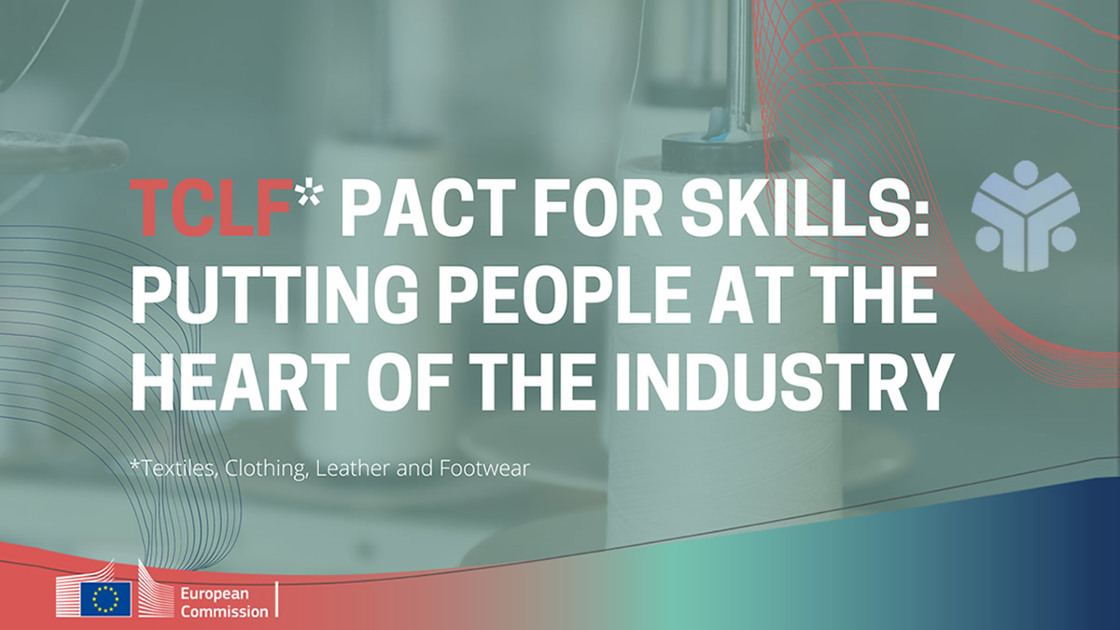an important step in investing in the skills, experience and knowhow of European workers
Today, the EU TCLF Pact for Skills is launched, with the support of 115 organisations, including industriAll Europe and its social partners in the TCLF sectors. This initiative, promoted by the European Commission, acknowledges the skills challenge in the textiles ecosystem with the signatories committing to invest in reskilling and upskilling workers, integrating green and digital skills, and improving the attractiveness of the sector. Members of the Pact will benefit from networking, guidance and resources offered by the European Commission to implement the targets proposed in the Pact.
The Pact for Skills is part of the EU Industrial Strategy, addressing the competitiveness of 14 critical ecosystems, including textiles. The main aim of the Pact is maximising the impact of investments in improving existing skills (upskilling) and training in new skills (reskilling). To reach such an ambitious goal, the Pact gathers various actors in the TCLF sectors: industry, social partners, national and regional authorities, education and training providers. IndustriAll Europe will work with their social partners, and other key stakeholders, to invest in large-scale skills partnerships, guarantee exchange of best practices and increase the attractiveness of the sector.
Specifically, the TCLF Pact for Skills focuses on five objectives with agreed actions:
- Promoting a culture of lifelong learning for all: design and roll out of courses promoting the latest technologies and digital tools and promoting durability, repair and waste management activities (green skills), in particular circular design skills.
- Building a strong skills partnership with relevant stakeholders: build regional and cross-sectoral partnerships between industry, education providers and authorities, which are adapted to their specific needs.
- Monitoring skills supply/demand and anticipating skills needs: establish a TCLF Skills Observatory.
- Working against discrimination and for gender equality and equal opportunities: launch a TCLF manifesto of diversity with supporting initiatives to improve the gender balance and ensure equal opportunities for all.
- Raising awareness & attractiveness of the TCLF industries: promote dedicated information campaigns, showcasing the opportunities in the sector and promoting mobility for young workers.
Judith Kirton-Darling, Deputy General Secretary of industriAll Europe, said:
“The TCLF sectors are in the middle of a green and digital transition. This is an important time for the industries, and its workers are at the heart of this transition. We are proud of having extremely qualified and talented workers making high tech and high quality products here in Europe. We can’t, and shouldn’t, compete in a race to the bottom in terms of price, and the move away from ‘’fast fashion’’ could be a good opportunity for European industries and workers.
“We need highly skilled and competent workers to ensure that Europe remains competitive and leads in the production of sustainable products. As such, ensuring that workers have the right skills, including green and digital skills, is vital, and we hope that the EU Pact for Skills plays its role in preparing workers for the future.’’
Contact: Andrea Husen-Bradley (press and communication), Elspeth Hathaway (policy adviser)
